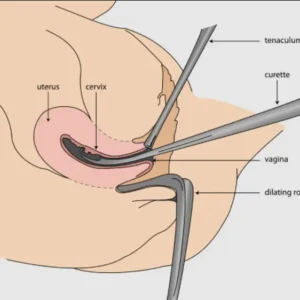Description
Familiarity with Treatment
Standard cochlear implant surgery is a well-established procedure used to treat severe to profound hearing loss. It involves the placement of an internal device, including an electrode array, into the inner ear. The surgery is typically performed under general anesthesia, and the implant is placed through a small incision behind the ear.
Procedure
The procedure for standard cochlear implant surgery typically involves the following steps:
- Incision: A small incision is made behind the ear to access the cochlea.
- Drilling: A small hole is drilled into the mastoid bone to create a pathway to the cochlea.
- Insertion of Electrode Array: The electrode array is carefully inserted into the cochlea through the drilled hole.
- Securing the Implant: The implant device, which contains the receiver-stimulator, is placed under the skin behind the ear and secured in place.
- Closing the Incision: The incision is closed with sutures or surgical adhesive.
Who is it Suitable For?
Standard cochlear implant surgery is suitable for individuals with severe to profound hearing loss who do not benefit from hearing aids. It is commonly performed on both children and adults.
Who is it Not Suitable For?
Standard cochlear implant surgery may not be suitable for individuals who have:
- Sufficient residual hearing that can be effectively amplified with hearing aids.
- Medical conditions that may increase the risks associated with surgery, such as active ear infections or bleeding disorders.
- Anatomical abnormalities that may prevent the successful placement of the implant.
A comprehensive evaluation by a medical professional specializing in cochlear implants is necessary to determine the suitability of the surgery for an individual.
Advantages
- Improved Hearing: Cochlear implants can provide significant improvement in hearing ability for individuals with severe to profound hearing loss, allowing them to perceive sound and understand speech.
- Enhanced Communication: Cochlear implants can improve speech understanding and communication skills, enabling individuals to better interact with others.
- Quality of Life: Cochlear implants have been shown to enhance overall quality of life, including social, emotional, and cognitive aspects.
Complications
Complications associated with standard cochlear implant surgery are generally rare but can include:
- Bleeding: Some bleeding may occur during or after surgery.
- Infection: Infection at the surgical site or around the implant can occur, although it is uncommon.
- Device Malfunction: Rarely, the cochlear implant device may experience technical issues or failure.
- Facial Nerve Weakness: Temporary weakness or paralysis of the facial nerve can occur but usually resolves over time.
- Tinnitus: Some individuals may experience ringing or other abnormal sounds in the ear after surgery.
- Dizziness: Temporary dizziness or imbalance may occur but typically resolves within a few days or weeks.
Preoperative Care
Preoperative care for standard cochlear implant surgery involves a comprehensive evaluation by a medical professional specializing in cochlear implants. This evaluation may include hearing tests, medical history review, and imaging studies to assess the individual’s candidacy for the surgery.
Postoperative Care
Following standard cochlear implant surgery, individuals will require postoperative care, which may include:
- Activation and Programming: After a healing period, the implant will be activated, and the individual will undergo programming sessions to optimize sound perception and speech understanding.
- Rehabilitation and Auditory Training: Rehabilitation and auditory training programs are typically recommended to help individuals adapt to the cochlear implant and develop listening and communication skills.
- Regular Follow-up: Regular follow-up appointments with the cochlear implant team are important to monitor progress, make adjustments to the programming, and address any concerns or issues that may arise.






Reviews
There are no reviews yet.